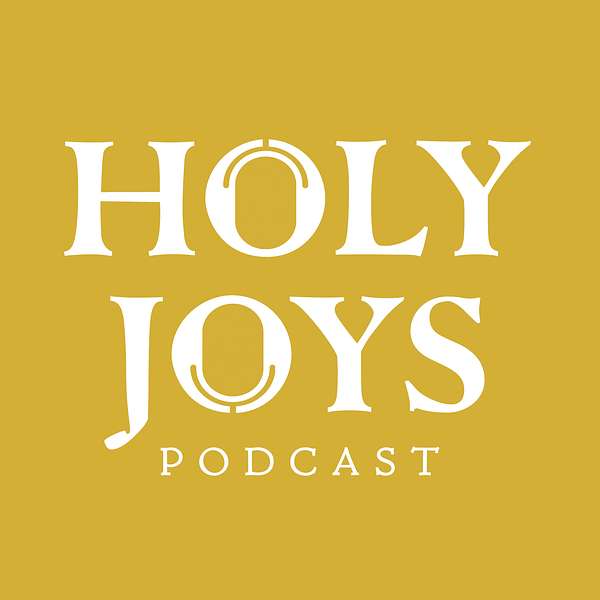
Holy Joys Podcast
A discussion of theology and ministry practice, all for a holy, happy church. A ministry of holyjoys.org.
Holy Joys Podcast
The Pastor as Theologian
•
Johnathan Arnold
In this episode, Johnathan Arnold and David Fry discuss the lost vision of the pastor as theologian.
Quotes from Fry:
- Theology has been for generations separated in some ways—some formal ways, even—from the life of the local church. We need to bring those two together again.
- As we study God, we study all things in right relationship to him.
- As pastors, our task is to bridge the horizon of biblical truth with where our culture is. Pastors stand between Scripture and culture and we have to try to bridge that gap by informing culture with the truths of God and relating the truths of God to culture so that we are shaping culture as well.
- Being a theologian as a pastor is not an option—that's not even the question—the question is whether or not we're going to be a good theologian or a bad one. And that depends on our own willingness to know God, to study his Word, and to be increasingly better communicators of the truth about God and the world in relationship to God.
- Many pastors are heavily involved in many aspects of the church's business, administration, marketing, and graphic design—all of these various hats that pastors often put on that actually take us out of intentional, prolonged study of God's word, and even affect our prayer lives. They take our mind away from dwelling upon God and how we can make God known to our people.
- I have had people tell me that I am the CEO of the church. No. That's not how I view myself. Certainly, I have administrative responsibilities. But we need to change the way we think about the ekklesia. The church is not a business corporation. We are the flock of God. The pastor's role as a guide is about being a shepherd after God's heart.
- We are to give theological guidance that will help a person bridge the truth of Scripture with the facts of culture and life. A pastor-theologian is one who brings theology to bear on the daily life of the local church. It's making theology meaningful to the people not only when they are sitting in their pews but also when they go to work on Monday morning.
- Pastors have to get back to seeing ourselves first as guides in Christian faith. That means doctrine—explicating what Christian doctrine is, what it means, and connecting it to real life. That takes time, study, and focus—not being drawn into every other thing that we could be doing.
Quotes from Arnold:
- Some people think that to be a theologian is to be up in an ivory tower, separated from the practical stuff of real-life ministry.
- People are faced with many complicated issues—this has been amplified by social media—and they need someone to shepherd them through the questions they are wrestling with. This is why theology is right at the heart of what it means to be a pastor.
- Pastors are called to provide a certain kind of comfort—a substantive comfort. We are to help the flock become grounded in the deeper truths of God through their suffering.
- Pastors are constantly addressing questions, whether from the pulpit or around the dinner table, and the issue is not whether or not we are going to give a theological answer, it's whether or not our theological answer is going to be substantive and meaningful or if it's going to be shallow.
- I know so many pastors who eat up guys like John Maxwell for breakfast. They want to get a Leadership and Administration degree. But when you talk to them about theology, they say, "Well, theology is important, but...."
- Pastors who are neglecting theological study are not equipped to navigate the questions of culture, so they begin to fall back on programs and other means to see "results" instead of growing the church organically and theologically. This leads to a lot of the anemia that we are seeing.

